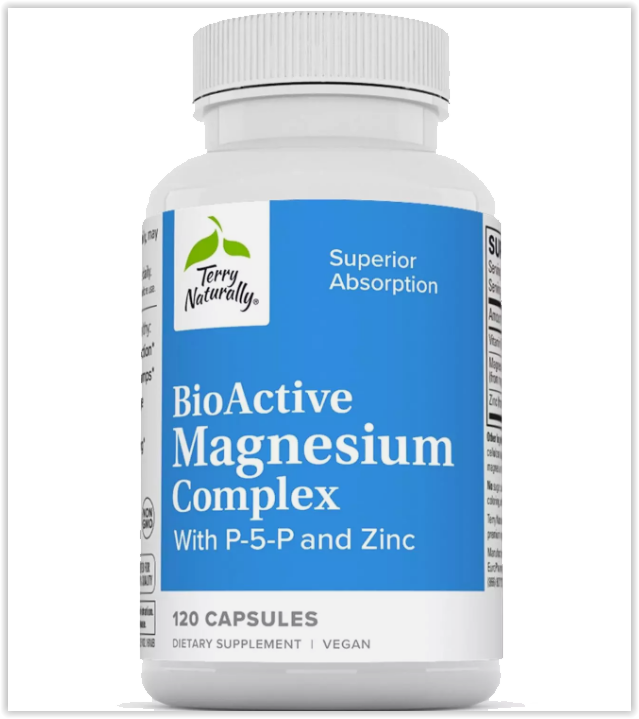Magnesium supplementation is not new and has been a staple in healthcare regimens for decades. While some choose to increase magnesium with their diets others choose a good supplement.
The Benefits of Magnesium
- Helps to reduce Constipation – Magnesium causes the small intestine to absorb more water. This softens the stool and increases movement through the intestines.
-
Helps Control Blood Sugar – Magnesium aids in the secretion of insulin by the pancreas into the bloodstream in response to elevated blood sugar. Low levels of magnesium correlate with insulin resistance. A meta-analysis (a statistical analysis from multiple independent studies) found that a 100 milligram (mg) per day increase in magnesium intake reduced the risk of diabetes by 15%. Another meta-analysis found that magnesium improved insulin sensitivity (the body’s ability to respond to insulin) in people at risk of diabetes (It was noted that these studies were all short=term studies).
- Helps Lower Blood Pressure – The Food and Drug Administration (FDA) approved a qualified health claim regarding magnesium and blood pressure. Magnesium may reduce blood pressure by relaxing the blood vessels and counteracting damage to them.
- Helps Improve Heart Health – Research on magnesium for heart health has shown a correlation between higher magnesium intake and reduced disease risk. Studies to date have shown decreases in LDL cholesterol (“bad” cholesterol). Increases in HDL cholesterol (“good” cholesterol). Reduced risk of sudden cardiac death and reduced stroke risk.
- Helps Support Bone Health – The mineral magnesium is involved in bone formation. Higher magnesium intake is associated with better bone mineral density. Osteoporosis – a disease associated with weakened bones (decreased bone mass and decreased bone mineral density) is associated with low magnesium levels.
- Helps with the Body’s Response to Stress – Magnesium is utilized by over 300 enzyme systems in the body. Some that include and regulate muscle and nerve function. The American Academy of Neurology determined that magnesium is “probably effective” for migraine prevention. Magnesium plays a critical role in numerous bodily functions, including energy production and relaxation. Magnesium is necessary in the process of converting food into energy. Magnesium also plays a role in regulating the body’s stress-response system. Adequate magnesium levels can promote relaxation, better sleep quality, and even help reduce symptoms of anxiety and depression.
Foods that are rich in magnesium
- Pumpkin seeds
- Chia seeds
- Almonds
- Spinach
- Cashews
- Peanuts
- Black beans
- Edamame
- Peanut butter
- Potatoes
How much Magnesium do you need?
Recent data shows that most Americans do not consume the recommended amounts of magnesium. People that have a plant-based or vegetarian diets have higher magnesium intake than those following meat-based diets.
The recommended dietary allowance (RDA) for magnesium:
- Adult females: 310–320 mg daily
- Adult males: 400–420 mg daily
- Pregnant people: 350–360 mg daily
- Breastfeeding people: 310–320 mg daily
Please note that high doses of magnesium supplements can lead to abdominal cramping and diarrhea. Contact a healthcare provider before taking magnesium supplements. These supplements can cause side effects and interact with certain medications.
Always notify and talk to your Healthcare Provider if you decide to take a Magnesium supplement.
Choosing a Magnesium Supplement that Works
First you should be very alarmed when you see any consumer review website that allegedly compares supplements and chooses and rates supplements and claims that one is rated five stars while another is rated or ranked with four or three stars. What you are seeing is a comparison of products where the website actually receives payment from the products that they are ranking or rating. Many of these sites are created and operated by companies outside of the United States no matter how professional they appear to be.
The most important part of taking a supplement is finding one that is bioavailable. This refers to the amount of supplement that your body can actually use and absorb. It is important to note that some supplements contain ingredients such as Bioperine or black pepper extract to enhance a products absorption. This does not mean that products without this additive are less absorbed and bioavailable. Some products have increased and even superior bioavailability and absorption due to the patented way that they were formulated to enhance their absorption. The reason that this is preferable is due to the fact that products that utilize and contain black pepper extracts can interact negatively with many prescription medications.
Always notify and talk to your Healthcare Provider if you decide to take a Magnesium supplement. It is important to mention to your Healthcare Provider that the supplement contains black pepper extract or bioperine. This way your provider will be alerted to the possible interaction with medications you may be prescribed or are currently taking.
Note if you have ever been told to avoid grapefruit by a physician then this includes you. Black pepper extract can have the same problematic effects as grapefruit.
The following magnesium supplement does not use black pepper extract to increase bioavailability and or absorption.
You can purchase this at the link below – click on the image.


Leave a Reply
You must be logged in to post a comment.